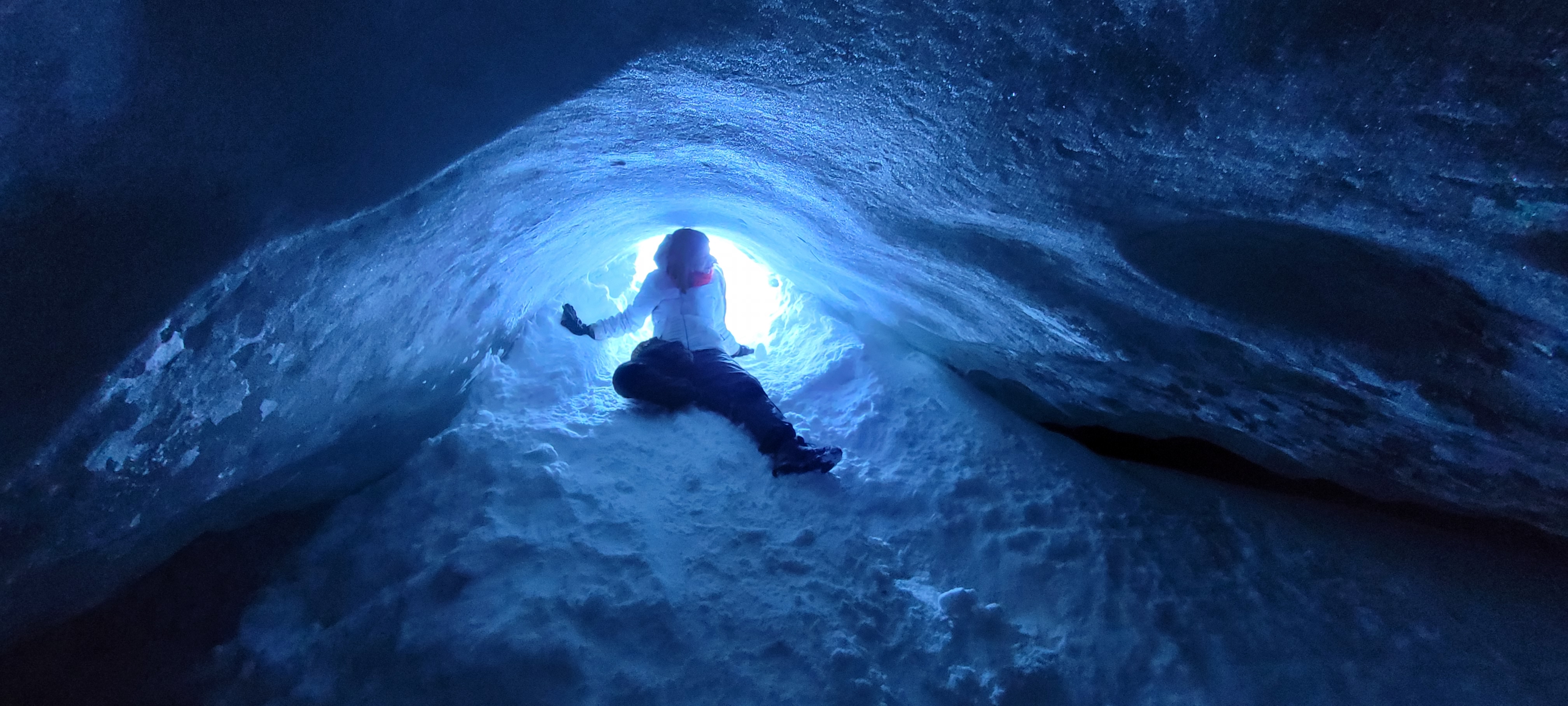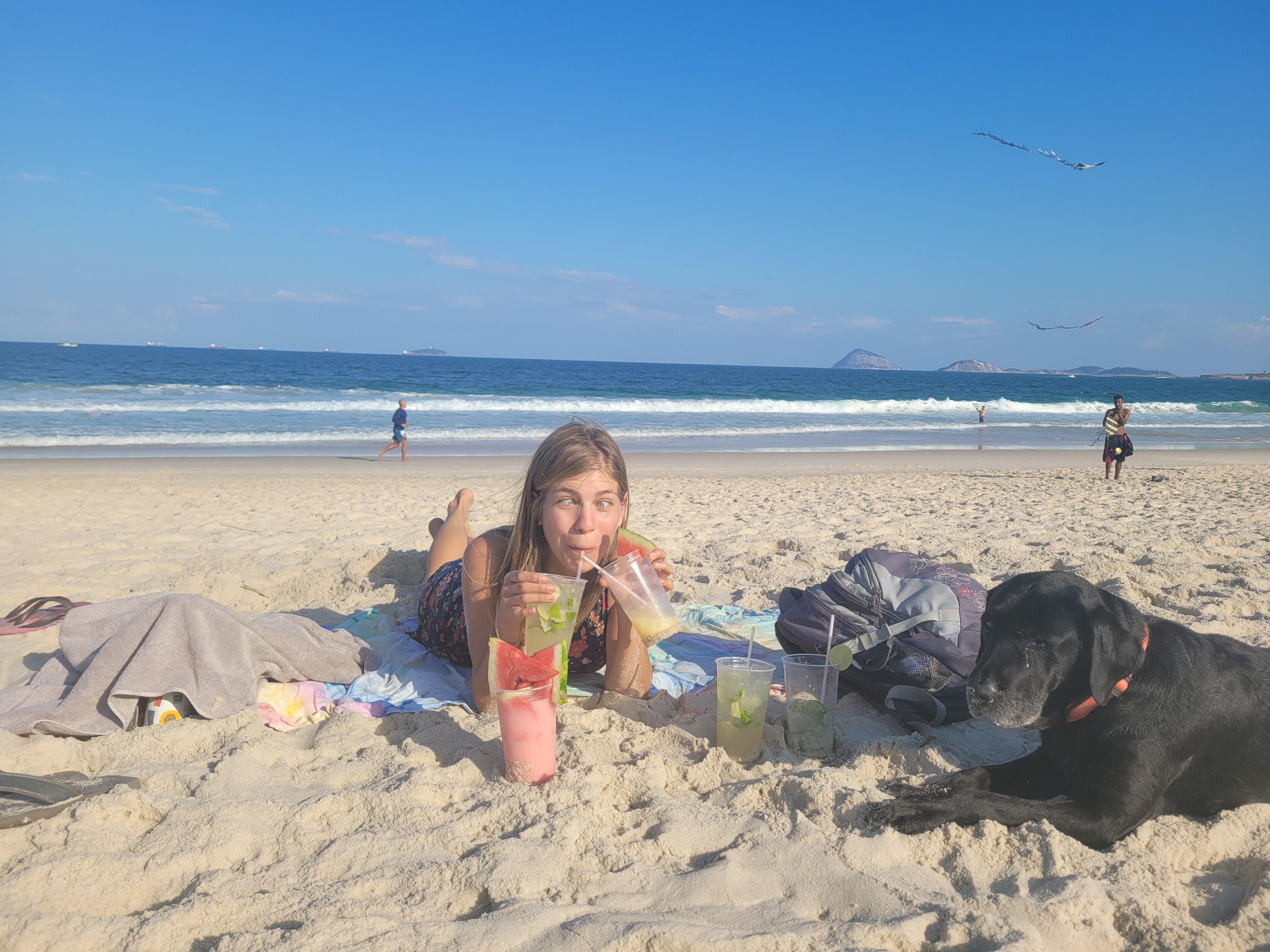Full time van life and mental health.

For many, when they hear or see someone living the ultimate van life “dream” they proclaim: “Oh, I’d love to live this way, but….”
When I share photos from my lifestyle many people tell me how envious they are of my lifestyle, how they wish they could do it too. They tell me how amazing it is and that I must be very brave and fortunate choosing this lifestyle. Leaving everything behind, my family and friends, my grounding, security of income and health services.
Their feelings about nomads are mixed. On one side they get excited about the idea of living this lifestyle on the other hand they see it as lunatic and irresponsible.
What they don’t see, as most of us when looking at something from the outside, is everything that’s behind this decision. What it actually really takes leaving all behind and heading towards new horizons without not always having a plan.
Yes, there are many van life nomads who have the resources to live this way and who, with the support of their beloved, live this way because they believe in the freedom it provides them with.
We have one thing in common, all the van life nomads, I dare to say. And it’s to be on the edge of society and not want to be a full part of the rat race.
But inside of this, there is also the group of nomads who decided to hit the road and explore the world as a means of living because there was something missing in their previous static life. Maybe they opted for this lifestyle to look for this missing part, maybe they left to ease the pain.
We all go through something in life and each of us decides how to deal with it.
I personally associate the nomad lifestyle with loneliness. At least I left and hit the road because there was simply no one “holding me back”. I had no reason to stay. Once I had a conversation on this topic with a friend of mine who has also been travelling even though is settling down now in Switzerland with his girlfriend. He also has no strong family roots or someone to go back to as often. We have friends who went on to travel but after a short period of time returned home to be with their loved ones.
Is it that people who feel like outsiders, and alone end up nomads? I’ve met people along the way who left their homes precisely for this.
Reasons vary. Some surely have loving families waiting for them at home and what moves them forward is the eager need to discover the world and oneself.
But what I want to concentrate more on is the mental health of nomads.
If not getting out of my comfort zone and deciding to travel I might have never finally address all of my insecurities. Not saying that travelling suddenly solved all my problems. Not at all. But the sense of movement, sense of liberty helps one to look more deeply inside. On what is really and actually going on within. It still might take the whole lifespan to figure things out. But being enclosed in familiar surrounding all the time might make it harder to find the answers.
Sometimes getting lost can open eyes to new dimensions and build new hinterlands.
So do the nomads who are so “lucky” living the life of dreams have it all figured out? Or actually on the contrary?

Nomadický život na plný úvazek a duševní zdraví.
Pro mnohé, když slyší nebo vidí někoho, kdo žije "život snů" cestováním po světě, prohlásí: „Ach, rád bych žil tímto způsobem, ale…“
Když sdílím fotky ze svého životního stylu, mnoho lidí mi říká, jak mi můj životní styl závidí, jak by si přáli, aby to dokázali také. Říkají mi, jak je to úžasné a že musím být velmi odvážná a šťastná, když jsem si vybrala tento životní styl. Nechávám všechno za sebou, svou rodinu a přátele, své zázemí, jistotu příjmu a zdravotních služeb.
Jejich pocity ohledně nomádů jsou smíšené. Na jedné straně jsou nadšeni myšlenkou žít tento životní styl, na druhé straně to považují za šílené a nezodpovědné.
To, co nevidí, jako většina z nás, když se na něco díváme zvenčí, je vše, co stojí za tímto rozhodnutím. Co to vlastně znamená nechat všechno za sebou a vydat se vstříc novým obzorům, aniž byste vždy měli plán.
Ano, existuje mnoho nomádů co cestují v obytných dodávkách, kteří mají prostředky na to, aby mohli žít tímto způsobem, a kteří s podporou svých milovaných žijí tímto způsobem, protože věří ve svobodu, kterou jim tento styl poskytuje.
Jedno máme společné, troufám si tvrdit, my všichni van life nomádi. A je to být na okraji společnosti a nechtít být plnou součástí krysího závodu.
Ale uvnitř toho všeho je také skupina nomádů, kteří se rozhodli vydat se na cestu a prozkoumat svět jako způsob života, protože v jejich předchozím statickém životě něco chybělo. Možná se rozhodli pro tento životní styl, aby hledali tuto chybějící část, možná odešli, aby zmírnili bolest.
Každý si v životě něčím procházíme a každý z nás se rozhoduje, jak s tím naloží.
Osobně si nomádský životní styl spojuji s osamělostí. Alespoň jsem odešeal a vydala se na cestu, protože mě prostě nikdo „nedržel“. Neměla jsem důvod zůstávat. Jednou jsem na toto téma mluvila s mým známým, který také cestuje, i když se nyní usazuje se svou přítelkyní ve Švýcarsku. Nemá také silné rodinné kořeny ani nikoho, ke komu by se mohl tak často vracet. Máme přátele, kteří cestovali, ale po krátké době se vrátili domů, aby byli se svými blízkými.
Je to tak, že lidé, kteří se cítí jako outsideři a sami, končí jako nomádi? Cestou jsem potkala lidi, kteří opustili své domovy právě kvůli tomu.
Důvody jsou různé. Na některé jistě doma čekají milující rodiny a to, co je posouvá dál, je dychtivá potřeba objevovat svět a sebe sama.
Ale na co se chci více soustředit, je duševní zdraví nomádů.
Kdybych nevystoupila ze své komfortní zóny a nerozhodla se cestovat, možná bych nikdy nevyřešila všechny své nejistoty. Neříkám, že cestování najednou vyřešilo všechny mé problémy. Vůbec ne. Ale smysl pro pohyb, pocit svobody pomáhá člověku nahlédnout hlouběji dovnitř. O tom, co se uvnitř skutečně děje. Pořád to může trvat celý život, než se věci vyjasní. Ale být neustále uzavřený ve známém prostředí může ztížit hledání odpovědí.
Někdy ztratit se může otevřít oči do nových dimenzí a vybudovat nová zázemí.
Takže nomádi, kteří mají takové „štěstí“, že žijí život snů, to mají všechno na duševní úrovni vyřešené? Nebo vlastně naopak?

@janathedreamer on IG
Pěkný text, rád se o něj podělím se svými sledujícími v mé sobotní rubrice :)
Moje zkušenost je taková, že lidi většinou vidí na nomádském životním stylu jen to dobré, tu svobodu, vzrušení, dobrodružství, zážitky, ale už nevidí ty záporné stránky, různé skryté problémy, nejistoty a věci, kterých se musí nomád vzdát, když se dlouhodobě pohybuje mimo svůj původní domov. Ano, na prví pohled vypadá tento životní styl jako splněný sen, ale má i své nevýhody a určitě není pro každého :) Můj názor.
@tipu curate
Naprosto s tebou souhlasím :)
I to jsem se snažila vylíčit v mém textu. Tento životní styl vypadá že my nomádi žádné problémy nemáme, ale ono to často je přesně naopak :D
Děkuji za sdílení v tvé sobotní rubrice :)
Upvoted 👌 (Mana: 0/42) Liquid rewards.
Congratulations @janathedreamer! You have completed the following achievement on the Hive blockchain and have been rewarded with new badge(s):
Your next target is to reach 80 posts.
Your next target is to reach 1500 upvotes.
You can view your badges on your board and compare yourself to others in the Ranking
If you no longer want to receive notifications, reply to this comment with the word
STOPTo support your work, I also upvoted your post!
Check out the last post from @hivebuzz:
Support the HiveBuzz project. Vote for our proposal!